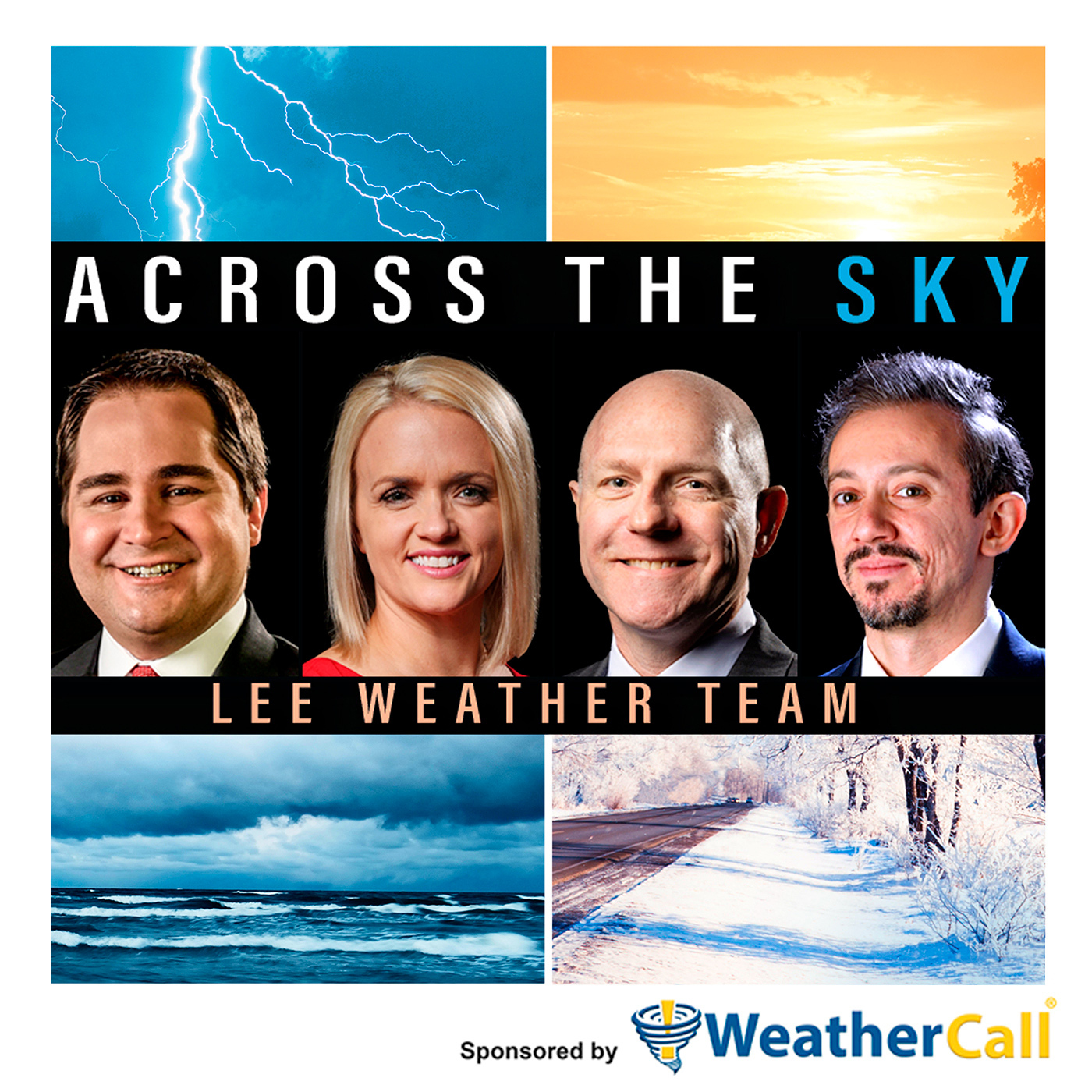How hurricanes are warming the oceans and shaping Earth's climate
Description
The devastating impacts of hurricanes on land are well known, but they cause changes to the oceans as well. While conventional thinking tells us that a hurricane cools the water after it passes, that's only partially true. The surface cools, but the deep ocean? It actually heats up.
With the peak of hurricane season upon us, Sally Warner, Associate Professor of Climate Science at Brandeis University and Noel Gutiérrez Brizuela, a Ph. D. graduate from the University of California, San Diego, join the podcast to discuss their research on what happens as the storms move over the ocean and what it means for climate change.
Read more at The Conversation: Hurricanes push heat deeper into the ocean than scientists realized, boosting long-term ocean warming, new research shows
We want to hear from you!
Have a question for the meteorologists? Call 609-272-7099 and leave a message. You might hear your question and get an answer on a future episode! You can also email questions or comments to [email protected].
About the Across the Sky podcast
The weekly weather podcast is hosted on a rotation by the Lee Weather team:
Matt Holiner of Lee Enterprises' Midwest group in Chicago, Kirsten Lang of the Tulsa World in Oklahoma, Joe Martucci of the Press of Atlantic City, N.J., and Sean Sublette of the Richmond Times-Dispatch in Virginia.
Episode transcript
Note: The following transcript was created by Adobe Premiere and may contain misspellings and other inaccuracies as it was generated automatically:
Welcome, everybody to another episode of the Across the Sky podcast hosted by our Lee Enterprises weather team. I’m meteorologist Joe Martucci, based at The Press of Atlantic City on the Jersey Shore. Here it is, hurricane season. It's been hurricane season since the beginning of June, but now we're really starting to ramp it up the peak of hurricane season right around September the 10th.
And this episode, we're going to talk about hurricanes. We're talking about it's impacts on warming the ocean and the deep ocean. And that's actually some research that really hasn't been done much in the past. We have to researchers Sally Warner and Noel Gutiérrez as well, who are on to talk to us about it here. We have Matt Holiner in the Midwest on the pod, Sean Sublette at the Richmond Times-Dispatch and Kirsten Lang at the Tulsa World.
It was it was a good episode. It was kind of it was neat to have Sally, who's in Massachusetts and Noel, who's in San Diego, kind of come together from both coasts for this episode. Before we get going, Matt, Sean or Kirsten, anything we could say before we hop into the interview. But I think for me it was very interesting to dive into how you know and look.
A lot of times what we focus on is the sea surface temperature. The keyword there is surface. And what their research focuses on is what's going on below the surface. And how do the hurricanes we we have a good understanding of how they impact sea surface temperatures. But what their research really focus on is how they're affecting the temperatures below the surface and the long term implications of that.
So just like how this dived a little bit deeper into what we as meteorologists mainly focus on, which is what is happening at the surface. But you really get the full picture of what's going on in the long term implications of you have to dive down and look what's going on below the surface. And so it was really good to talk to them and hear the process about how they were measuring those temperatures as well.
That was very interesting to hear. Yeah, it was interesting to hear about how not just how they did it, the shifts that they had to take to do this, but it's a good reminder of the time scales that we're working on here for their research. I mean, obviously, when we're all meteorologists, we know that warmer water fuels more hurricanes.
But as you alluded to, Matt, we need to talk about the surface and and how far down is the surface be
More Episodes
Hurricane season has arrived and all signs are pointing to a very busy year. Dr. Mike Brennan, the director of NOAA's National Hurricane Center, joins the Lee Weather Team this week to discuss everything you need to know for the 2024 season.
Brennan and the team break down the number of storms...
Published 06/03/24
Summer travel season is here! This week, The Weather Channel's Jen Carfagno joins the team to share her weather coverage travel stories. Hurricanes and snowstorms can be harrowing and bring their own set of challenges, but she also shares her more comforting travel stories to Punxsatawney each...
Published 05/27/24
Published 05/27/24


